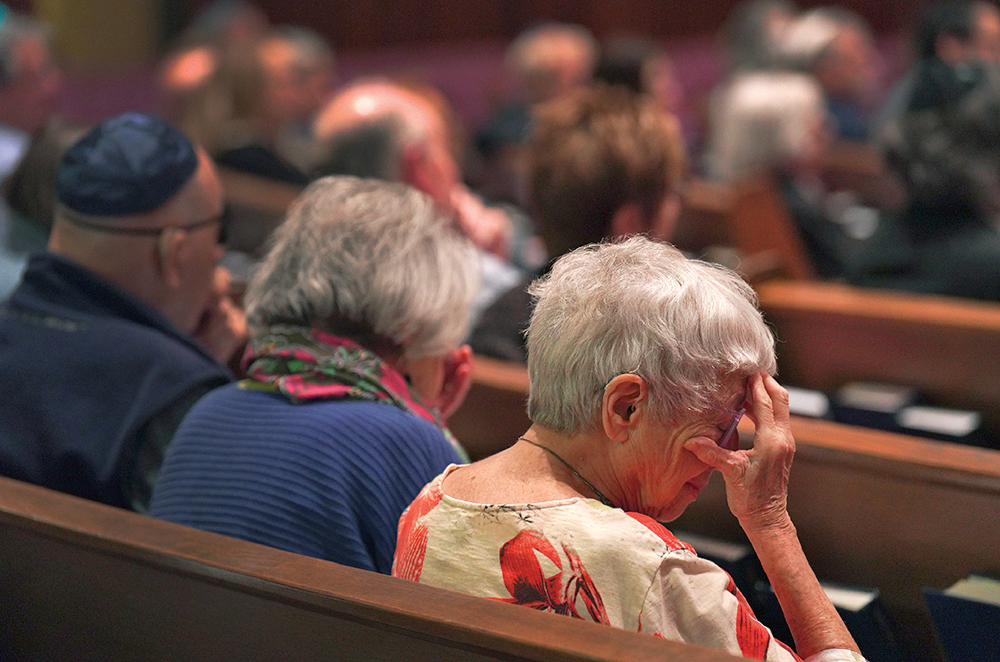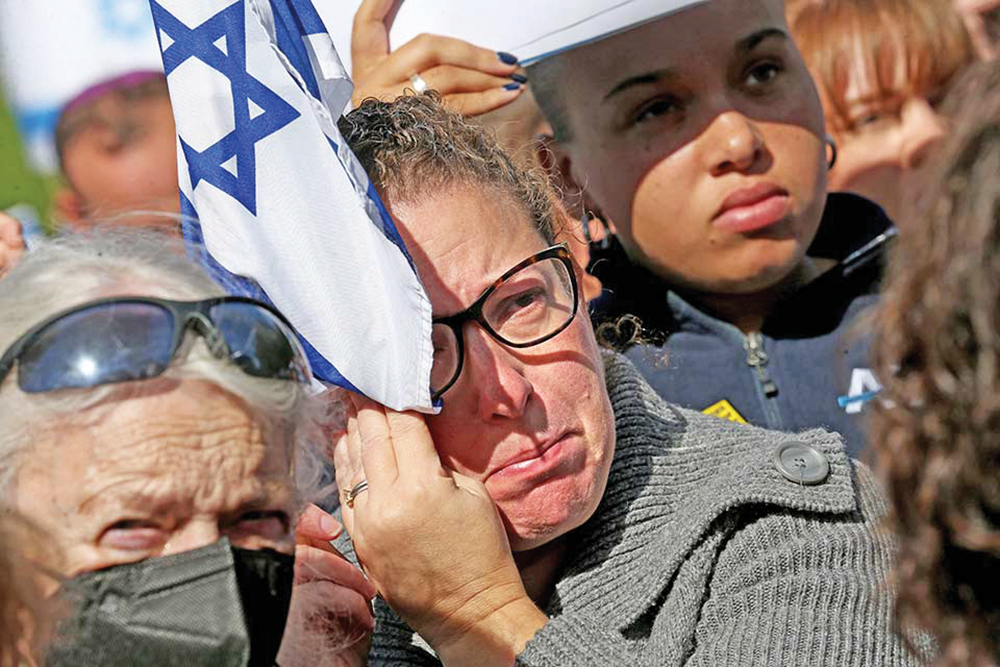
Hashem had humbled the mighty Egyptian empire, quieted the riotous ocean, and delivered His word atop a blazing mountain. He could have easily constructed a celestial Mishkan in heaven, but instead, determined that His abode on Earth be fashioned by human handiwork. Hashem always prefers a human element.
This national project of constructing a house for Hashem attracted broad interest. Everyone joined the epic project but not everyone experienced it in identical fashion. The midrash claims that many Jews, envisioning this day well in advance, had gathered goods and materials in anticipation of a possible construction project. Hundreds of years earlier, recognizing the inevitability of this project, Yaakov had secured tall acacia wood beams to one day serve as the skeleton of the Mishkan. Many people were prepared for this great calling.
Others, the midrash acknowledges, were less prepared. Hundreds of years of slavery and oppression had shuttered their imaginations, boarding up any vision of a house for Hashem. Unable to match the donations of the “prepared,” the “unprepared” donated whatever they could rustle up. Everyone donated to this joint project. They just experienced it very differently.
As the actual construction commenced, these differences became even more pronounced. The architects and craftsmen were more intimately involved in the months-long process, while the common people looked on from the outside. Not possessing the requisite construction skills, most people couldn’t possibly contribute as significantly as the skilled artisans. Building the Mishkan was a joint project, but one which was experienced very differently by the different sectors of the population.

Unity comes in many varieties. Sometimes unity is homogeneous, as everyone undergoes an identical experience. Other times, we share a common project or agenda but stream it through different lenses and hear it on different frequencies. Those differences don’t diminish unity. Unity is often heterogeneous.
Unity Stage One
“Unity” is a word which hasn’t left Jewish lips or Jewish hearts in four months. In response to a vicious and violent attack upon our people, our entire nation rallied as “one,” independent of political, religious or ethnic differences. Our common struggle for survival dwarfed every petty difference which, in the past, divided us. Israelis fought shoulder-to-shoulder in Azza, while steadfastly bolstering the home front, supporting the families of victims and families of heroic soldiers defending us. Israelis were united in action and unified by tears. We cried together and mourned together, losing sleep and worrying about our soldiers and our future.
This outburst of unity extended well beyond Israel’s borders; Jews across the world partnered in this historical struggle. They cried with us and lost sleep as we did. During the first few months of the war, we all experienced the tragedy in the exact same manner: shock, grief, pain, darkness, and horror. On that infamous morning, Jewish hearts across the world broke in unison.
Unity Stage Two
More recently things have begun to change. The war has become our new normal, as we have settled into a new and previously unimaginable routine. There is an unavoidable gap widening between Israelis and non-Israelis as they experience the second stage of the war very differently. It is impossible for this to be otherwise. It is crucial to honestly acknowledge this gap and accept and appreciate the different experiences. Otherwise, we may be offended by one another. If we become offended, we will become divided.

During the past week, visiting Jewish communities in the U.S., I often faced awkward encounters with friends. Close friends who I hadn’t seen in months approached me with broad smiles and hearty handshakes, asking how I was and expressing how happy they were to see me. In most instances my friends quickly realized that their effusion was inappropriate, and they quickly pivoted into more subdued welcomes. In the few instances in which my friends weren’t self-aware and didn’t adjust their demeanor, I softly responded that “I am doing as best I can under the circumstances.”
These awkward encounters highlighted the gap between how Israelis process the continuing war and how non-Israelis are experiencing it. It is almost impossible to feel the same pain and sorrow when you are separated by thousands of miles and living in a different time zone. Israelis greet each other very differently. We shake hands solemnly, our tired eyes meeting in forlorn resignation. We dejectedly nod to one another, silently acknowledging that we all bear the same heavy burden.
Some Israelis are deeply disappointed by non-Israelis who just don’t “get it.” Please excuse Israelis for these feelings. As we travel from funeral to shiva house and back to funerals we are encircled in gloom. I find myself choking down tears and gasping for air. As I speak with my young students, I pinch my palm forcing myself to display strength and optimism rather than burdening them with my grief and sadness.
A few weeks ago, a soldier was killed in Azza, just a few days after soldiers who I knew well were killed. I felt an overwhelming need to “sit this one out,” pay less attention and mourn less. I just needed a “time out” to regather myself. Feeling terribly guilty, I still knew that I was making the correct decision.
Daily life in Israel has been thrown into chaos. Families have been separated for months. We are maintaining high morale but are carrying heavy weights. Our grief is exacerbated by our frustration, as we don’t see an easy solution in the near future.
Please excuse us for the awkward encounters. Please excuse us if our eyes sink and our eyelids close. That is how we greet each other in Israel, and we mean no insult, and certainly don’t intend to project a false sense of superiority. Please understand us.
Non-Israelis Are Grieving as Well
Just the same, Israelis must better understand the mindset of non-Israelis. I am awestruck by how deeply non-Israelis are emotionally invested in our common tragedy. Their sleep, as ours, is nightly disturbed. They cry in their hearts, even if the tears don’t always reach their eyes. Every community recites Tehillim, collects funds, conducts Torah study programs, sends duffels, and arranges missions, amid countless other acts of support. Like us, they live with constant anxiety and uneasiness. They are processing the tragedy deeply, but with different expressions.
I am overwhelmed by how much guilt non-Israelis feel. Guilt at not being able to live in Israel. Guilt at not being able to do more from afar. Guilt at not being able to cry as deeply. Guilt is the quiet whisper of a healthy conscience. Every Jew who lives outside of Israel must hear their conscience calling them home. Do not suppress the guilt. It is the echo of our Motherland beckoning her children home.

Life is too complicated for simplistic generalizations that every Jew must immediately move to Israel. Now isn’t the time for patronizing judgments. Now is the time for unity. Please understand us. Please help us understand you.
Reaching out across the miles, I say to every Jew who lives outside of Israel but yearns to be with us and yearns to cry with us: We know. We feel your support and please don’t ever stop showing it. We do not judge you. We are you and you are us. We know. We also know that you know.
The writer is a rabbi at Yeshivat Har Etzion/Gush, a hesder yeshiva. He has semicha and a B.A. in computer science from Yeshiva University as well as a master’s degree in English literature from the City University of New York.












